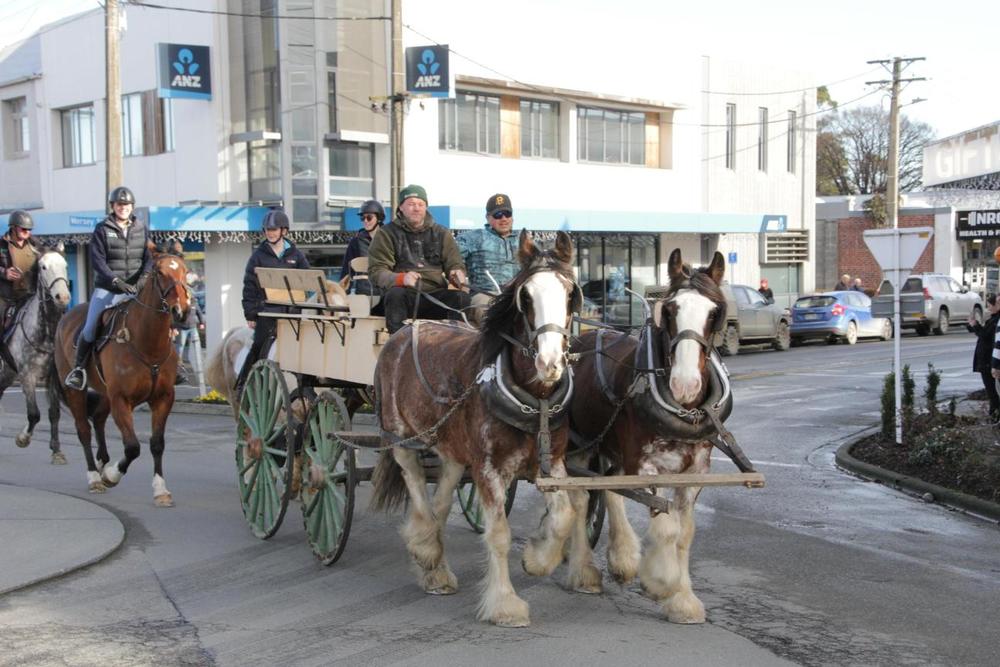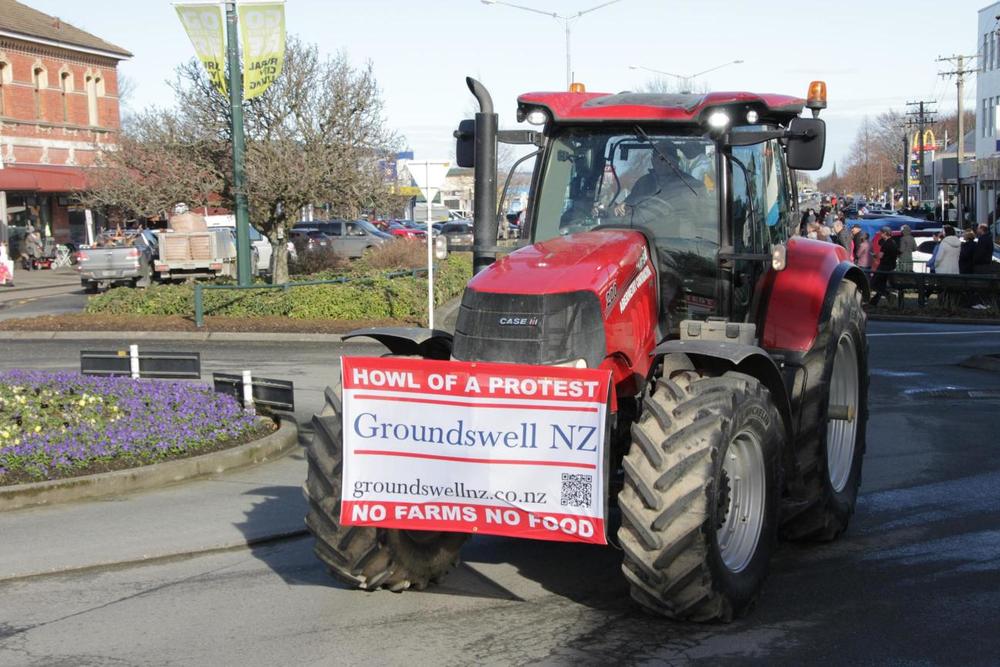Tractors, horse-drawn carts to stop traffic on SH1
Lara Fagan
19 October 2022, 3:59 AM
 Groundswell NZ has planned a nationwide strike on Thursday that will impact SH1.
Groundswell NZ has planned a nationwide strike on Thursday that will impact SH1.Tractors, horse-drawn carts and supporting cars will make their way through the Hibiscus Coast tomorrow (Thursday) to protest against the government’s proposed plan to tax farmers for emissions.
Groundswell NZ have planned a nationwide strike called “We're Not Going To Take It” and will impact all four main cities, and the SH1 from Wellsford to Auckland.
Local farmers and their supporters will drive, and trot, in convoy into Auckland. Members and supporters will join the convoy along the way.

The protesters will meet at Centennial Park, Wellsford at 9.30am and make their way down to Victoria Park, Auckland.
Along the way, others will join the convoy in Puhoi at 9.45am-10am, Silverdale at 10.15am and Orewa at 10.30am.
They are expected to be at Victoria Park by noon.
They will be traveling along the SH1 into the city, and the speed of the tractors and horse-drawn carts will cause traffic to slow down and get backed up.
The government announced that New Zealand is on the path to reducing greenhouse gas emissions across a broad range of areas, like transport, energy, building, agriculture, forestry, and waste.
They have set a target for zero greenhouse gas emissions by 2050 (other than biogenic methane).

Farmers across New Zealand say that this proposed emissions plan will have a huge effect on them because they will have to pay for agricultural emissions, which they refuse to do.
After the announcement in May, over 28,000 people have signed up to protect the farming and rural communities from this proposed plan.
New Zealand farmers are recognised as the most sustainable food producers in the world and farmers are concerned that the tax will lead to higher food prices due to the lack of food available and ‘more land going to pine trees’.
Some of the other ways the government plans to reduce emissions is to have zero carbon public buses from 2025 and all the public transport vehicles be decarbonised by 2035; trucks that transport food and other products must have low emissions by 2035 resulting in a 35 percent drop in freight emissions.
The government wants initiatives to support the purchase and lease of low-emission vehicles and wants electric vehicles to increase by at least 30 percent by 2035.
They want large businesses to be powered by clean, renewable energy.
The government also wants to phase out the use of coal and put a ban on low to medium-temperature coal boilers by 2037.
They also want to reduce waste going to landfills and more investment in infrastructure allowing most houses to have kerbside food waste collection by 2030.
